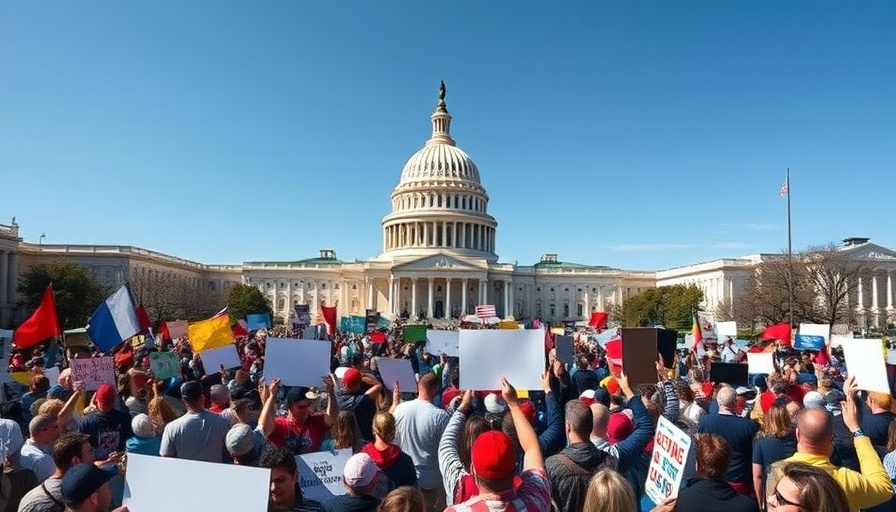
The ACLU Takes a Stand Against NEA's ‘Gender Ideology’ Policy
In a historic move, the American Civil Liberties Union (ACLU) has filed a lawsuit against the National Endowment for the Arts (NEA), challenging a controversial new funding policy that prohibits the promotion of 'gender ideology.' This lawsuit comes as a significant response to a federal order issued under the Trump administration, which many believe restricts artistic expression and undermines diversity within the arts.
The Heart of the Matter: Artistic Freedom Under Fire
The NEA, a federal agency that supports arts funding across the nation, has introduced new regulations mandating that grant applicants cannot promote works that delve into gender identity issues. The ACLU argues that this restriction constitutes a direct violation of the First Amendment, which protects freedom of speech and artistic expression.
For many artists and organizations leveraged on federal funding, this policy creates a chilling atmosphere where fear stifles creativity. The plaintiffs, including theater companies like Rhode Island Latino Arts and The Theater Offensive, express that this policy not only impacts theatrical productions but could extend to all forms of art—potentially muzzling voices from the LGBTQ+ community.
Why This Lawsuit Matters to Artists Everywhere
As Emily Brooks, a local arts aficionado, observes, the repercussions of this ruling are felt not just in theaters in Rhode Island or New York but resonate across the entire artistic community. Artists of varying backgrounds fear that future projects could be rejected for simply addressing narratives that involve gender identities. This has sparked conversations about the role of government in art funding and diversity initiatives, raising the question: should art reflect only government-approved viewpoints?
A Community Divided: Conflicting Perspectives
While organizations like the ACLU push for inclusivity and equal representation, there are differing opinions in the public sphere regarding this controversial policy. Some argue that the government should not fund projects that promote ideologies they deem counter to traditional values. However, the counterarguments made by the theater companies underline the importance of inclusion and the potential damage of silencing marginalized voices in arts and culture.
Impact on Arts Organizations: Real Stories and Real Costs
Specific examples highlight the human impact of NEA’s policy decision. The Rhode Island Latino Arts organization planned a timely rendition of ‘Faust’ featuring a gay and queer protagonist—now uncertain of pursuing NEA funding due to fear of ‘gender ideology’ accusations. Similarly, The Theater Offensive is reconsidering its plans for the trans-centric play 'Smoke', due to the restrictions currently imposed. These narratives illustrate a broader cultural struggle for representation in the arts.
What Lies Ahead: Future Implications for Art Funding
As the legal battle unfolds, many fear the long-term implications of these policies could shift the artistic landscape irreparably. Federal art funding was historically guided by the principle of promoting artistic excellence without political bias. If the ACLU's lawsuit succeeds, it could restore faith in the NEA’s commitment to diversity and artistic expression, inviting a new era where art thrives unshackled from ideological constraints.
As this lawsuit progresses, the ongoing conversation about the intersection of art, politics, and identity continues to engage artists, supporters, and the general public. The stakes are high—not just for the organizations involved but for the entire arts community striving for free expression and representation.
Now is the time to stand in solidarity with artists advocating for freedom of expression—understand the issues, support the movement, and participate in the dialogue that could ultimately shape the arts landscape in America.
 Add Row
Add Row  Add
Add 




Write A Comment